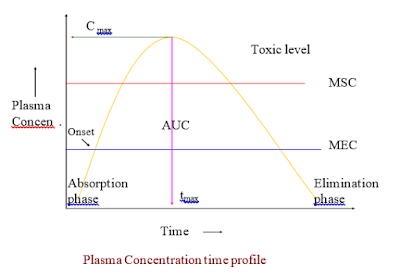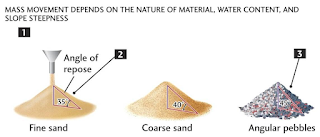BASIC CONCEPTS AND IMPORTANCE OF VARIOUS PHARMACOKINETIC PARAMETERS

INTRODUCTION: Pharmacokinetics, sometimes abbreviated as PK, (from Ancient Greek pharmakon "drug" and kinetikos "to do with motion") is dedicated to the determination of the fate of substances administered externally to a living organism. Pharmacokinetics is the science of the kinetics of drug absorption, distribution, and elimination (ie, excretion and metabolism). The description of drug distribution and elimination is often termed drug disposition. Pharmacokinetics is often studied in conjunction with pharmacodynamics. Pharmacodynamics explores what a drug does to the body, whereas pharmacokinetics explores what the body does to the drug. Pharmacokinetics includes the study of the mechanisms of absorption and distribution of an administered drug, the rate at which a drug action begins and the duration of the effect, the chemical changes of the substance in the body (e.g. by enzymes) and the effects and routes of excretion of the metabolites of the dru...



